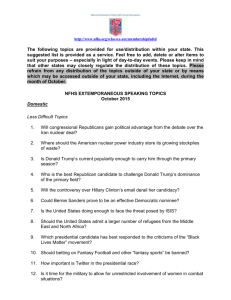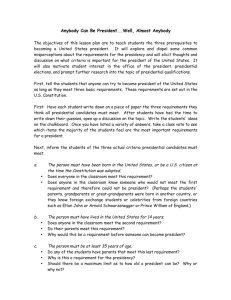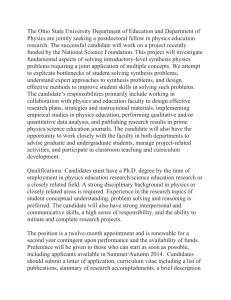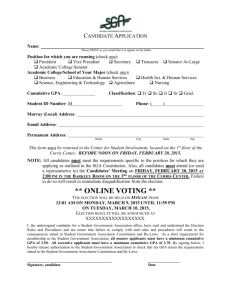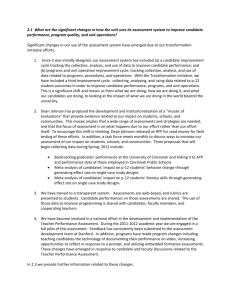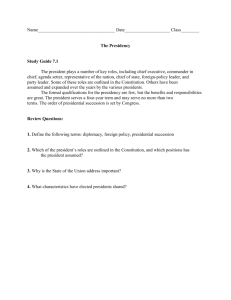petition-for
advertisement
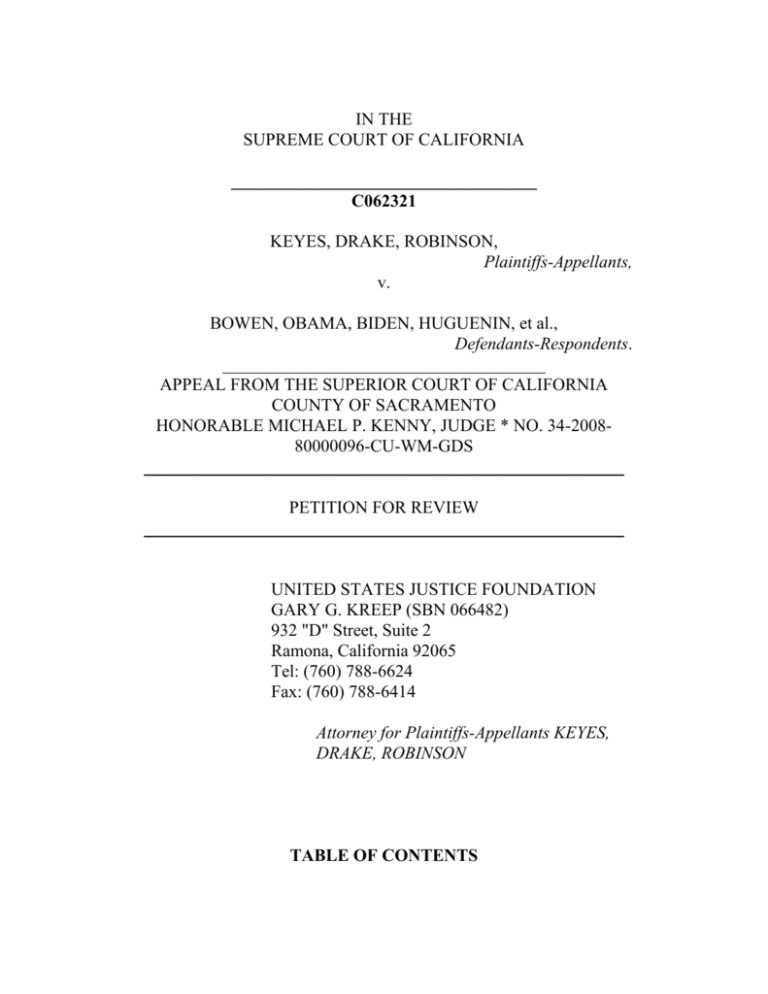
IN THE SUPREME COURT OF CALIFORNIA ___________________________________ C062321 KEYES, DRAKE, ROBINSON, Plaintiffs-Appellants, v. BOWEN, OBAMA, BIDEN, HUGUENIN, et al., Defendants-Respondents. _____________________________________ APPEAL FROM THE SUPERIOR COURT OF CALIFORNIA COUNTY OF SACRAMENTO HONORABLE MICHAEL P. KENNY, JUDGE * NO. 34-200880000096-CU-WM-GDS _______________________________________________________ PETITION FOR REVIEW _______________________________________________________ UNITED STATES JUSTICE FOUNDATION GARY G. KREEP (SBN 066482) 932 "D" Street, Suite 2 Ramona, California 92065 Tel: (760) 788-6624 Fax: (760) 788-6414 Attorney for Plaintiffs-Appellants KEYES, DRAKE, ROBINSON TABLE OF CONTENTS ISSUE PRESENTED ............................................................................ 1 WHY REVIEW SHOULD BE GRANTED ......................................... 2 BACKGROUND ................................................................................. 4 LEGAL DISCUSSION ........................................................................ 9 THERE IS NO EFFECTIVE FEDERAL MECHANISM TO CHALLENGE CANDIDATE ELIGIBILITY ........................... 9 NEITHER CONGRESS NOR THE ELECTORAL COLLEGE HAVE THE AUTHORITY TO MAKE DETERMINATIONS OF PRESIDENTIAL ELIGIBILITY ...................................... 12 THE STATUTORY DUTIES OF THE SECRETARY OF STATE ARE IN CONFLICT WITH REGARDS TO VERIFYING ELIGIBILITY OF NATIONAL PARTY PRESIDENTIAL CANDIDATES .......................................... 17 CONCLUSION .................................................................................. 20 ii TABLE OF AUTHORITIES U.S. CONSTITUTION United States Constitution, Article II, § 1, Clause 5 ........ 2,14,15 United States Constitution, Article V ....................................... 15 United States Constitution, 12th Amendment ........................ 9,11 United States Constitution, 20th Amendment ..................... 8,9,10 FEDERAL STATUTES 3 United States Code § 15 .................................................. 8,9,10 FEDERAL CASES Japan Whaling Ass'n v. American Cetacean Soc. (1986) 478 U.S. 221, 230 ................................................................................. 13,14 Marbury v. Madison (1803) 1 Cranch 137 (1803) 177, 2 L.Ed. 60 .......................................................................... 16 Robinson v. Bowen (N.D.Cal. 2008) 567 F.Supp.2d 1144 ......... 9 STATE STATUTES California Elections Code § 6901 ............................................. 18 California Government Code § 12172...................................... 17 iii iv IN THE SUPREME COURT OF CALIFORNIA _____ C062321 KEYES, DRAKE, ROBINSON, Plaintiffs-Appellants, v. BOWEN, OBAMA, BIDEN, HUGUENIN, et al., Defendants-Respondents. _____________________________________________________ APPEAL FROM THE SUPERIOR COURT OF CALIFORNIA COUNTY OF SACRAMENTO HONORABLE MICHAEL P. KENNY, JUDGE * NO. 34-200880000096-CU-WM-GDS _____________________________________________________ _______________________________________________________ PETITION FOR REVIEW _______________________________________________________ ISSUE PRESENTED Whether the Secretary of State, as the Chief Elections Officer of the State of California, be required to verify that candidates for the Office of President of the United States are indeed eligible for the office before placing the candidates on the California ballot? WHY REVIEW SHOULD BE GRANTED This case presents a pressing question regarding the elections power of the California Secretary of State that has not, as of this filing, been determined - whether the Secretary of State has the responsibility to verify whether candidates for the Office of President of the United 1 States are indeed eligible for the office before placing those candidates on the California ballot. Elections for the Office of President of the United States are a serious matter. The office is not only the most powerful elected position in the United States, but it is also the most powerful political position in the entire world. Because of vast power available to anyone who wins this office, there is a significant public interest in ensuring that the position is held only by someone who meets the constitutional qualifications for holding the office. The drafters of the United States Constitution understood the need for a president who has ties only to the United States, which is why the United States Constitution, Article II, Section 1, Clause 5, specifies the minimum qualifications for holding the office. However, while the qualifications for President were specified, no means of verification, or enforcement, were provided for in the Constitution. In like manner, the United States Code lacks provisions for verification or enforcement of presidential qualifications. California state law does provide means for verifying the qualifications of all elected officials, for both state and federal offices. 2 In California, this authority to inform candidates of qualification requirements, and, subsequently, verify that these qualifications are met vested in the California Secretary of State. As far as presidential candidates, however, this responsibility is improperly limited so as to only cover verification of Presidential and Vice Presidential candidates who are not members of a national political party. For this reason, APPELLANTS’ respectfully request that the California Supreme Court should accept APPELLANTS’ petition so that this unsettled, and improper, limitation on the verification authority of the California Secretary of State may be resolved. BACKGROUND Petitioner-Appellant Dr. Alan Keyes (hereinafter referred to as “KEYES”) was the Presidential candidate for the American Independent Party in the 2008 election on the California State Ballot (CT 671). Petitioner-Appellant Dr. Wiley Drake (hereinafter referred to as “DRAKE”) was a Certified California Elector of the American Independent Party and was the Vice Presidential candidate of the American Independent Party in the 2008 election on the California State Ballot (CT 671). Petitioner-Appellant Markham Robinson 3 (hereinafter referred to as “ROBINSON”) was a Certified California Elector of the American Independent Party, Chairman of the American Independent Party (California), which nominated KEYES and DRAKE for President and Vice President, respectively, and Vice Chairman of America’s Independent Party, of Fenton, Michigan, which nominated KEYES for President (CT 671). Respondent Debra Bowen (hereinafter referred to as “BOWEN”) is the Secretary of State of California (CT 671). Respondent Barack Obama (hereinafter referred to as “OBAMA”) was a former U.S. Senator from Illinois, and he was the Presidential Candidate of the Democratic Party on the California State Ballot in the 2008 election (CT 671). Respondent Joseph Biden (hereinafter referred to as “BIDEN”) is a former U.S. Senator from Delaware, and he assumed office as Vice President of the United States on January 20, 2009 (CT 671). Following the November 8, 2008 election, on December 1, 2008, BOWEN certified to the Governor of the State of California the names of the California Democratic Electors and transmitted to each presidential Elector a Certificate of Election (CT 265). 4 On January 20, 2009, OBAMA was inaugurated and assumed office as President of the United States, and BIDEN assumed office as Vice President. This appeal arises out of the Trial Court’s judgment dismissing APPELLANTS’ First Amended Petition for Writ of Mandate (CT 1156). On November 13, 2008, APPELLANTS filed a Petition for Writ of Mandate, naming BOWEN, OBAMA, BIDEN, and the California Democratic Party Electors as RESPONDENTS (CT 1). APPELLANTS’ First Amended Petition (hereinafter referred to as “FAP”) was filed February 23, 2009 (CT 670). FAP sought to have the court bar BOWEN from both certifying to the Governor the names of the California Electors, and from transmitting to each Presidential Elector a Certificate of Election, until documentary proof of OBAMA’S, and all future candidate’s, eligibility to serve as President was provided to the California Secretary of State in office at that time, in all future Presidential elections (CT 686). BOWEN filed a demurrer to the Petition on February 23, 2009, on the ground that the Petition failed to state facts sufficient to constitute a cause of action against her, that the petition is moot and 5 that there is no judicable controversy, as it relates to the 2008 General Election, and that the controversy is not ripe as it relates to future elections (CT 720). BOWEN argued that the Secretary of State has no “ministerial duty” to demand detailed proof of citizenship from Presidential Candidates (CT 1089). The Trial Court agreed and sustained BOWEN’S demurrers (CT 1106). The Court stated that a writ of mandate can only issue if the respondent has a clear, present, and beneficial interest in the performance of that duty (CT 1106). The Trial Court stated that APPELLANTS failed to identify authority requiring the Secretary of State to make an inquiry into, or demand for, detailed proof of citizenship from Presidential candidates (CT 1101). The trial court also stated that FAP is moot insofar as it relates to the 2008 general election (CT 1101). The Court stated that the FAP failed to frame the issues with sufficient concreteness and immediacy to allow the Court to render a conclusive and definitive judgment, rather than an advisory opinion based on hypothetical facts or speculative future events (CT 1102). OBAMA, BIDEN, and the California Electors also filed a demurrer to the Petition on February 23, 2009, on the grounds that the 6 Petition did not state facts sufficient to constitute a cause of action against any of RESPONDENTS, that the Trial Court had no jurisdiction over the subject of the action as alleged in FAP, and that FAP suffered from a defect or misjoinder of parties (CT 728). The Trial Court sustained the demurrer on the ground that FAP did not state facts sufficient to constitute a cause of action against the named RESPONDENTS, because the pleading did not seek any relief as to either OBAMA or BIDEN (CT 1102). The Trial Court also stated that FAP does not prove that California Electors have a duty to review their candidate’s eligibility (CT 1103). The court sustained RESPONDENTS’ demurrer on the ground that FAP suffered from a defect or misjoinder of parties because it contained allegations concerning future elections and, since the future Electors are indispensable parties to such a claim, the Electors must be before the court (CT 1103). The trial court also sustained the demurrer on the ground the Court has no jurisdiction over the subject of the action (CT 1103). The Court stated that the exclusive remedy for challenging the qualifications of the President is an action before the United States Congress pursuant to the 12th Amendment of the United States 7 Constitution and 3 U.S.C. § 15 (CT 1103). Lastly, the Court stated that the case is moot because the Secretary of State already placed the candidates’ names on the ballot, the election already took place, and the President and Vice President had already been inaugurated and engaged in the duties of their offices (CT 1103). On June 10, 2009, after sustaining, without leave to amend, RESPONDENTS’ demurrers to FAP, the trial court entered its judgment dismissing FAP (CT 1158). Following the Trial Court’s judgment, APPELLANTS timely filed their Notice of Appeal on June 19, 2009 (CT 1181). The Court of Appeal Third Appellate District heard oral arguments on this matter on October 20, 2010. On October 25, 2010, the Appellate Court filed its decision affirming the judgment of the Superior Court on the grounds that “plaintiffs have not established that the Secretary of State has a ministerial duty to investigate and determine whether a presidential candidate is constitutionally eligible to run for office.” This Petition for Review followed. LEGAL DISCUSSION 8 THERE IS NO EFFECTIVE FEDERAL MECHANISM TO CHALLENGE CANDIDATE ELIGIBILITY The Appellate Court incorrectly stated in its decision that for any question of presidential eligibility, mechanisms exist to resolve said questions under the 20th Amendment to the United States Constitution, and 3 United States Code (hereinafter referred to as “U.S.C.”) 15 for when the Electoral votes are counted, and the 12th Amendment to the United States Constitution when a candidate is not eligible. The Appellate Court relied on Robinson v. Bowen to show that issues of Presidential qualifications are best resolved in Congress. (Decision of the Third Appellate Court page 17, citing Robinson v. Bowen (N.D.Cal. 2008) 567 F.Supp.2d 1144, 1147). The 12th Amendment simply directs the Electors to cast their votes and send the votes in a sealed envelope to the United States Congress for counting. Once the votes are sent to Congress, the process for objections under 3 U.S.C. 15 is very limited. The objections must be in writing, signed by at least one Senator and one Member of the House, and clearly state without argument the ground of the objection. Each house of Congress then takes the objections and 9 votes only on whether the procedures for selecting the Electors were followed, and if they were followed, the Electoral votes may not be rejected: "no electoral vote or votes from any State which shall have been regularly given by electors whose appointment has been lawfully certified to according to section 6 of this title from which but one return has been received shall be rejected". (3 U.S.C. 15). This statute does not allow for general objections to be brought, and, even if such objections were allowed, the Electoral votes may not be rejected by Congress if the Elector was selected in accordance with the rules of the Elector’s state. Since this remedy is so limited in its scope, the question of whether a candidate for President is eligible for the office cannot be effectively addressed, much less resolved, under current constitutional or statutory law. It should be noted that while there is no constitutional or statutory law dealing with who is to make determinations of eligibility, once a candidate for the Office of President is found to be ineligible, there are constitutional guidelines regarding presidential succession. The 20th Amendment states, “if the President elect shall have failed to qualify, then the Vice President elect shall act as President until a 10 President shall have qualified; and the Congress may by law provide for the case wherein neither a President elect nor a Vice President elect shall have qualified, declaring who shall then act as President, or the manner in which one who is to act shall be selected, and such person shall act accordingly until a President or Vice President shall have qualified.” (U.S. Constitution, Amendment 20, Section 3). Having clear rules of Presidential succession, however, does not resolve the question of who would have the authority to determine eligibility. As was discussed above, the means available to Congress with regards to eligibility are limited to specific disputes over Electoral College Electors or, as authorized by the 20th Amendment, to choose a successor once the President elect is found to have failed to qualify. For this reason, there is no Congressional remedy available to resolve the question of whether OBAMA is in fact eligible for the office of President. NEITHER CONGRESS NOR THE ELECTORAL COLLEGE HAVE THE AUTHORITY TO MAKE DETERMINATIONS OF PRESIDENTIAL ELIGIBILITY 11 RESPONDENTS previously argued on appeal, concerning the issue of whether OBAMA is eligible to serve as President of the United States, that there exists no textually demonstrable constitutional commitment of the issue of verifying eligibility for serving in the office of President. I.e., they claim that there is no specified branch of government, political body, or other governmental entity tasked with determining whether a candidate is eligible for the office of President. The Electoral College is the body which elects the President, based on the popular vote of the Elector’s respective states1, and Congress has the constitutional oversight to challenge and determine whether an Elector was properly elected or appointed, and whether an Elector properly cast a vote for President. However, neither Congress, nor the Electoral College, has the authority, as a result of either the U. S. Constitution, or a Federal Statute, to make determinations of eligibility, or to exclude a candidate who fails to meet the eligibility requirements, because eligibility requirements are not political in Most States have enacted “faithless Elector” statutes which impose civil and/or criminal sanctions against Electors who vote for any candidate other than the one who won the majority vote in that particular state. For this reason, Electors perform a ministerial task of voting in accordance with the popular vote of the state and may not exercise any discretion regarding the qualifications of a candidate. 1 12 nature with regards to the duties of Congress and the Electoral College. “The political question doctrine excludes from judicial review those controversies which revolve around policy choices and value determinations constitutionally committed for resolution to the halls of Congress or the confines of the Executive Branch. The Judiciary is particularly ill suited to make such decisions, as ‘courts are fundamentally under equipped to formulate national policies or develop standards for matters not legal in nature.’” Japan Whaling Ass'n v. American Cetacean Soc. (1986) 478 U.S. 221, 230. There are issues which the Judiciary, as a whole, is ill equipped to determine, however, when an issue is one that does not “revolve around policy choices and value determinations constitutionally committed for resolution to the halls of Congress or the confines of the Executive Branch,” the Court then has the jurisdiction to make a determination of that issue. Id. The mere fact that issues of eligibility are related to elections and may have political elements does not preclude the Court from hearing such cases. The Court in Japan Whaling Ass'n v. American Cetacean Soc. also held, “[b]ut under the 13 Constitution, one of the Judiciary's characteristic roles is to interpret statutes, and we cannot shirk this responsibility merely because our decision may have significant political overtones.” Id. at 230. The issue of whether OBAMA is eligible to serve as President of the United States is one that has “significant political overtones,” given that it has a direct relation to the election of the most powerful political office in the United States, but it is, nonetheless, an issue which the Court can make a determination on, because the requirements for said office are clearly stated in Article II, Section 1, Clause 5, of the U.S. Constitution, and Courts routinely decide questions such as at issue in this case. An argument has been made that the political question doctrine precludes action by the Court because such action would improperly arrogate to the Court jurisdiction over political questions as to the fitness and qualifications of the President, which the Constitution entrusts exclusively to the House and the Senate, and that issues related to a candidate’s eligibility for the office of President rest, in the first instance, with the voters, and with the Electoral College. This assertion is incorrect in a number of ways. First, a provision of the 14 Constitution may not be disregarded by means of a popular vote of the people, as there are specific guidelines for amending the Constitution of the United States. The United States Constitution requires a twothirds vote of both Houses of Congress, and a ratification by threefourths of all State legislatures in the United States to do so. (U.S. Constitution, Article V). Even if the people of the United States voted to elect as President a candidate who did not qualify for the position, that vote would not be sufficient to overcome the Constitutional requirements for the office and make that candidate eligible. (U.S. Constitution, Article II, Section 1, Clause 5). Because voters can, and do, vote for candidates that are liked by the voters, even if those candidates may not be eligible for the position, the voters do not have the power, or the right, to determine the eligibility of a candidate. Furthermore, the process for determining whether a candidate has met any and all requirements for eligibility to run for the office of President is addressed nowhere in the United States Constitution, nor in any federal legislation, to date. This then begs the question of who controls this process? It would seem to be a clear violation of the “Separation of Powers” doctrine to place this ability in the executive 15 branch, because, since the issue is whether OBAMA is ineligible for the office of President of the United States, it would be a conflict of interest for OBAMA, or for an executive officer under OBAMA’S control, or for his political party, to have the sole power to review OBAMA’S eligibility. To place this power in the legislature’s hands would seem appropriate, since this is the branch that determines all of election law. However, the issue here is not one of determining new election law, but one of whether California was in line both with its own state constitution and the United States Constitution on this issue. This is ultimately an issue of judicial review, which has been a recognized power of the judiciary since 1803 in the case of Marbury v. Madison (1803) 1 Cranch 137 (1803) 177, 2 L.Ed. 60. THE STATUTORY DUTIES OF THE SECRETARY OF STATE ARE IN CONFLICT WITH REGARDS TO VERIFYING ELIGIBILITY OF NATIONAL PARTY PRESIDENTIAL CANDIDATES California Law dictates the duties the Secretary of State, including the duty as chief elections officer of California, to ensure election laws are followed (California Government Code [hereinafter referred to as “CGC] § 12172), the duty to investigate election fraud (CGC § 12172), and the duty to advise candidates and local elections 16 officials on the qualifications and requirements for running for office (CGC § 12172). In order to fulfill her duty to advise candidates, there are several documents on the California Secretary of State website informing all who are seeking elected office as to the qualifications and requirements for each elected position. Documents listing the qualifications and requirements are provided for the offices of Governor and Lieutenant Governor; Secretaries of State, Controller and Treasurer; Attorney General; Insurance Commissioner; Member of the State Board of Equalization; State Senator and Member of Assembly; United States Senator; United States Representative in Congress; and President of the United States. The Secretary of State currently verifies that every candidate for these positions, except for that of the office of President of the United States, meets the requirements for each respective office. Since the Secretary of State does have a ministerial duty to verify the eligibility for nearly all of the candidates for office, it is not improper to infer that she also has a ministerial duty to verify the eligibility of those who are running for the office of President of the United States. However, California Elections Code (hereinafter referred to as “EC”) Section 6901 is at 17 odds with remainder of the Secretary of State’s duties specified in the California Code, because this statute directs that the Secretary of State must place on the ballot the names of the several political parties’ candidates. (EC Section 6901). The effect of this statute is that the Secretary of States’ duty to ensure compliance with election law is suspended in favor of some other entity. The Appellate court suggested that entities which have the authority to verify eligibility include political parties, the voters, the Electoral College, and Congress. (Decision of the Third Appellate Court page 17). Congress and the Electoral College, as discussed above, both lack the constitutional or statutory authority necessary to determine eligibility. In addition, political parties, while seeming at first glance to be an ideal body to check whether their candidate is eligible, are not reliable for this task for a number of reasons. First, as private associations, political parties cannot be compelled to perform any task or duty with regards to the candidates that the parties chose as representatives. Second, political parties exist for the purpose of obtaining power by encouraging the election of candidates who associate with the party. This means that the parties have an interest in 18 winning elections, whether or not their candidate is eligible, and if said party can win only by putting forward a popular yet ineligible candidate, what would prevent the parties’ support of the ineligible candidate if there was a chance the lack of eligibility would not be found out? Therefore, political parties are not a sufficient check of a candidates’ eligibility. Likewise the voters are not a proper entity to verify a candidates’ eligibility. First, the voters may support a candidate whom they like, regardless of eligibility. In addition, even if the voters were to elect an ineligible candidate, such a vote would stand in clear violation of constitutional requirements, and no vote of the people is sufficient to alter the U. S. Constitution in any way, because a popular vote is not a valid means of amending the Constitution. Since it is clear that none of the entities suggested by the Appellate court have the requisite authority to verify the eligibility of a Presidential candidate, the only other option would be for the Secretary of State to make such a determination. However, due to the apparent conflict of duties found in the California Statutes concerning this matter, there remains an unresolved question of law for which 19 APPELLANTS’ respectfully request that the California Supreme Court accept this petition. CONCLUSION For the reasons discussed above, APPELLANTS’ have demonstrated that questions of eligibility are not properly before any entity other than the court or the chief elections officer of the State of California and that the matter below was improperly dismissed because APPELLANTS’ have established that the Secretary of State has a ministerial duty to verify a candidates eligibility. However, since an actual conflict arises between this duty and the duty to simply place a national party candidate for President on the ballot, APPELLANTS’ respectfully request that this court accept this petition for review. Respectfully Submitted, ______________________ Gary G. Kreep Attorney for APPELLANTS 20

